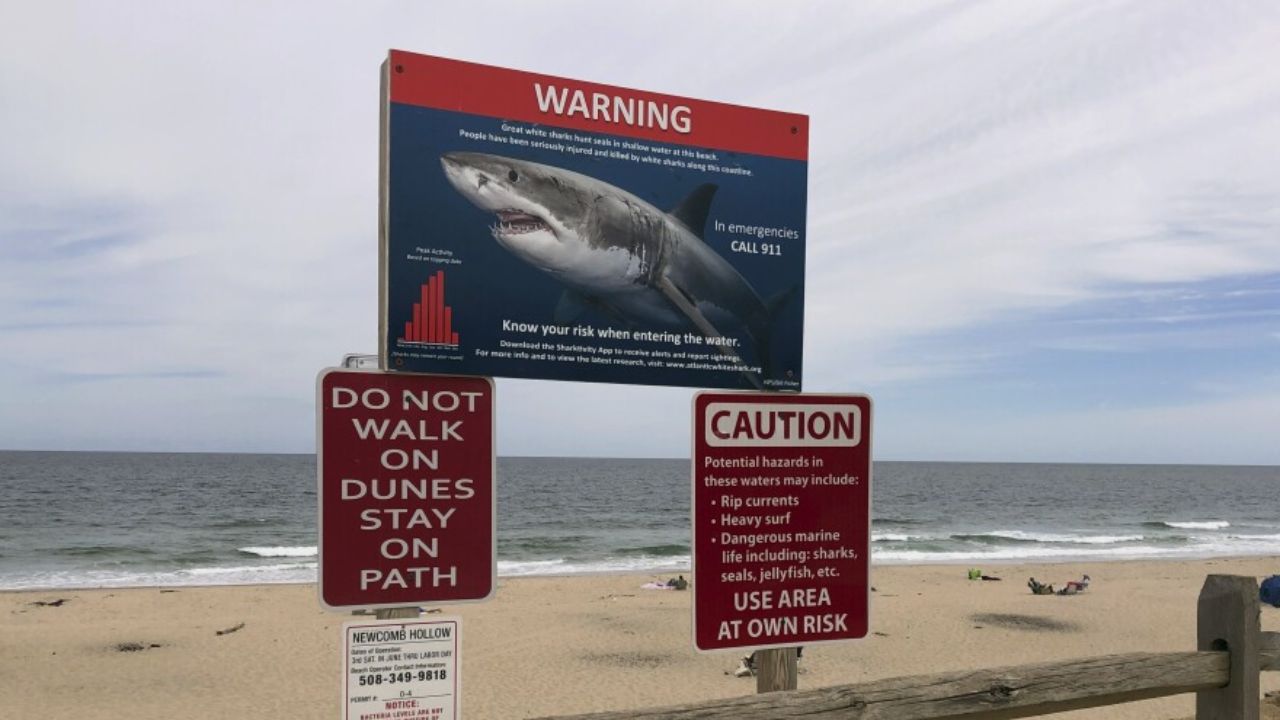Key Largo, Florida – A Labor Day snorkeling trip turned frightening after an 8-year-old boy was bitten by a shark off the coast of Key Largo. Authorities say the child was airlifted to a Miami hospital for treatment, highlighting that while shark encounters remain rare, they can happen even in popular tourist areas.
The Incident in Key Largo
The Monroe County Sheriff’s Office confirmed the bite occurred around 3:24 p.m. on Monday, September 1, while the boy was snorkeling. Emergency crews responded quickly, and the child was transported by air to Jackson Memorial Hospital in Miami.
Officials have not yet released the boy’s identity or the extent of his injuries. Hospital representatives declined to provide additional details, citing privacy concerns. The case remains under review, and authorities have not disclosed what type of shark may have been involved.
Florida’s Shark Bite Record
Florida is home to some of the most active shark habitats in the world, but experts stress that serious shark attacks remain rare. Still, this latest incident adds to a growing list of encounters in 2025.
In July 2025, two separate shark bites were reported at New Smyrna Beach in Volusia County, long nicknamed the “shark bite capital of the world”.
- An 18-year-old surfer was bitten on the foot.
- A 40-year-old swimmer was bitten on the forearm.
Earlier this year, other shark-related injuries in Florida included:
- A fisherman on Cayo Costa Island bitten while posing for a photo with a shark he had caught.
- A Canadian tourist in Hollywood, Florida, who suffered arm lacerations in the water.
Expert Insight: Shark Bites Not Increasing
While recent incidents draw attention, researchers note that shark bite trends are not on the rise. According to Gavin Naylor, shark geneticist at the University of Florida, shark bites declined in 2024 and are tracking at an “about average” pace in 2025.
Naylor directs the International Shark Attack File at UF’s Florida Museum of Natural History. His team reports 21 “unprovoked” shark bites in Monroe County—where Key Largo is located—since 1882.
By comparison, Volusia County recorded 94 bites between 2012 and 2021, averaging 12 to 15 per year, though only four had occurred by mid-2025. Importantly, nearly all bites in Florida are nonfatal and often minor.
Read Also: Florida Man Accused of Running Over Foot Model After She Refused Fetish Request on First Date
Why Florida Sees So Many Shark Encounters
Florida’s warm waters and active tourism contribute to its shark bite numbers. Experts cite several reasons:
- High swimmer density: Millions of visitors enter Florida waters annually, increasing potential encounters.
- Feeding grounds: Species like blacktip and spinner sharks frequent shallow coastal waters.
- Surfing activity: Popular beaches like New Smyrna see heavy surf traffic, where sharks often chase bait fish.
Sharks are not targeting humans but may mistake swimmers for prey, especially in murky waters.
Safety Recommendations
Authorities and marine experts suggest precautions for swimmers and snorkelers:
- Avoid swimming at dawn or dusk when sharks are most active.
- Stay in groups; most shark bites involve solitary swimmers.
- Remove shiny jewelry, which may resemble fish scales.
- Avoid areas where people are fishing.
- Exit the water calmly and quickly if a shark is spotted.
Looking Ahead
The boy’s condition after the Key Largo bite has not been confirmed, but officials say he received immediate medical attention. Florida residents and tourists are reminded that while shark bites are newsworthy, the actual risk remains low. Vigilance, preparation, and awareness of surroundings are key when enjoying the state’s popular beaches and reefs.
Do you think Florida beaches are becoming riskier for swimmers, or are shark bites overblown in the media? Share your opinion in the comments at ibwhsmag.com.


 by
by 

